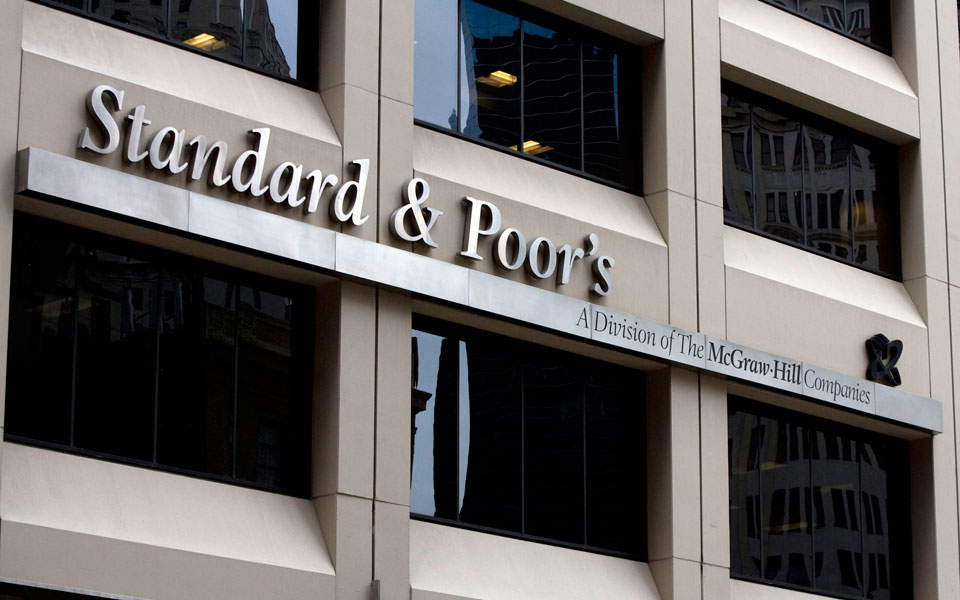Paying the price of investors’ lost trust

The recapitalization of the Greek core banks is a positive development in the country’s struggle to return to growth. However, the terms of the recapitalization required to attract private money also highlights the costs incurred by taxpayers when the international markets lose confidence in a country and its lenders try to minimize the use of bailout funds.
In quantitative terms, the recapitalization process of the four core Greek banks was bound to be a success from the moment the Single Supervisory Mechanism (SSM) of the ECB identified a capital gap of 14.4 billion euros in the four systemic Greek banks under the adverse macroeconomic scenario and 4.4 billion under the base scenario.
This is because the European Stability Mechanism (ESM) had put aside 10 billion euros to be disbursed in short notice for the recapitalization of the banks and committed up to 25 billion euros in total from the 86-billion-euro support package. The disbursements via the state-owned Hellenic Financial Stability Fund (HFSF) were conditional on progress in economic reforms. In other words, it was guaranteed that banks’ total capital shortfall would be covered.
The big question centered on how much capital the private investors would put in because this would lower the amount of bailout funds being used. It was clear to outsiders that the EU lenders’ overriding goal was to limit the bailout funds Greece would need from 2015 through the first half of 2018. The recapitalization of the banking system offered this opportunity via two channels. First, capping the banks’ total capital needs well below 25 billion euros, and second, maximizing the participation of private investors in the planned share capital increases.
Of course, everybody understood that the total capital needs of the banks was directly linked to their ability to manage their large stock of non-performing loans (NPLs) and stop the emergence of new ones. This explains why the creditors reportedly maintained a tough stance during the negotiations on foreclosures and are likely to insist on the banks’ having the option to sell all kinds of bad and other loans to distress funds. Had the creditors accepted the more lenient terms the Greek side understandably wanted, the ECB would probably have had to go back and recalculate the banks’ capital needs, boosting the amount of 14.4 billion euros.
Already, Standard & Poor’s (S&P) estimates that the four banks – Alpha Bank, Eurobank, National and Piraeus – will have to take additional provisions of 2 to 4 billion euros for bad loans on top of the ECB’s baseline scenario in the stress tests to adequately cover non-performing assets. The credit rating agency said in a statement on Friday that the capital being raised by the core banks will only be enough to absorb the losses that they are expected to post over the next 12 to 18 months.
As far as private participation is concerned and judging from the outcome of the four banks’ book-building process, one must admit the creditors’ goal was achieved. At this point, it looks as if the HFSF will deploy between 5 and 6 billion euros for the recapitalization of the local banking system, including funds directed to boost the capital base of non-core banks. This means 19 to 20 billion euros out of the 25 billion earmarked for the recapitalization of the sector will not be disbursed, reducing the funding of the third Greek bailout program to about 66-67 billion euros.
It is noted that Alpha Bank and Eurobank combined capital raised privately via an accelerated book-building and other means, such as the swap of bank securities, i.e. junior and senior bonds, hybrids, for common equity, to fully cover their total capital shortfall. Piraeus Bank managed to raise the minimum amount of 1.34 billion needed under the baseline scenario of the ECB’s stress tests and National Bank will likely follow suit when the public offering in Greece takes place.
But the very low offer prices at which capital raisings take place have raised eyebrows, resulting in a significant reduction of HFSF’s equity stakes in the four banks. The HFSF is expected to have a stake of about 2.5 percent in Eurobank and 12.5 percent in Alpha Bank after the share capital increase. It will also see its equity stakes come down considerably in National and Piraeus Bank.
Although many may applaud the increase of private ownership in all systemic banks, one should also take into account the potential transfer of wealth from the current shareholders and taxpayers to the new shareholders. This is because of the terms, reflecting, among others, the high country risk. The HFSF will have spent more than 40 billion euros in taxpayers’ money to recapitalize the banks in the last few years and will end up recovering only a small amount even under the good-case scenario, according to analysts.
Moreover, we don’t know the extent of participation by Greek companies, businessmen and wealthy individuals in the banks’ book building process. It is noted domestic individuals and entities could have registered to buy new bank shares though international brokers. The extent of the Greek participation is not known but could be significant, according to sources. The domestic investors will make money if everything goes well but will suffer losses, potentially giving rise to NPLs, if not.
The recapitalization of the Greek banking sector was necessary to boost people’s confidence in the system, pave the way for the gradual lifting of capital controls and help the recovery of the economy. However, it is also a lesson on the costs incurred by taxpayers when investors’ trust is lost.
[Kathimerini English Edition]





